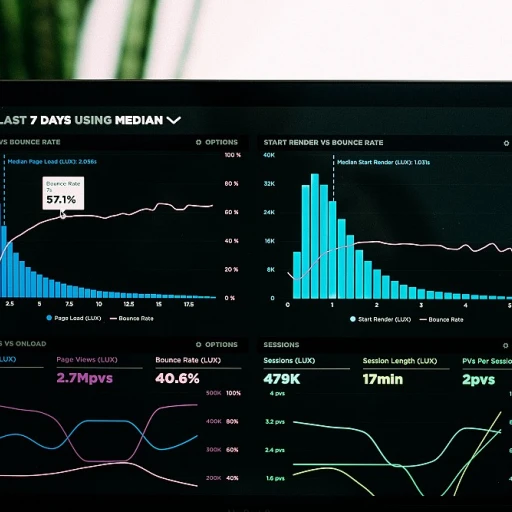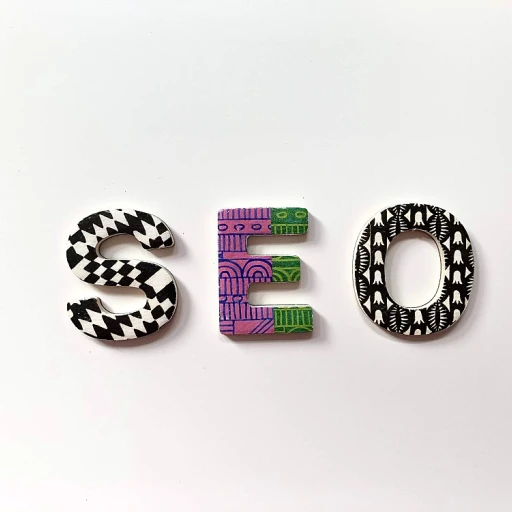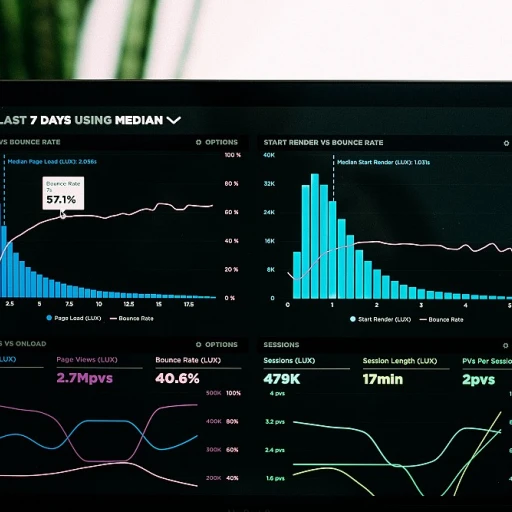The Role of AI in Modern SEO
Revolutionizing Digital Marketing
As the digital landscape continues to evolve, the role of artificial intelligence in shaping SEO strategies becomes increasingly paramount. AI technology has revolutionized how marketers approach search engine optimization, offering sophisticated tools and techniques to enhance visibility and performance.
One of the most significant ways AI is impacting SEO is through its ability to automate and streamline processes that were once labor-intensive. By leveraging AI-driven algorithms and models, SEO professionals can now efficiently handle massive datasets, extract meaningful patterns, and identify emerging trends.
These advancements empower businesses to tailor their strategies in a more responsive and dynamic manner, ensuring that they remain competitive in an ever-changing digital environment. For instance, AI systems are adept at analyzing and processing search engine trends, allowing marketers to adapt their content to better align with user expectations and search demands.
Furthermore, AI's integration into SEO is not only about automation and efficiency; it also offers critical insights into audience behavior and engagement. This enables marketers to understand and anticipate user intent, facilitating the creation of more targeted and impactful content, as shown in our exploration of understanding user intent. As AI continues to develop, it remains a critical ally in the ongoing quest to optimize and refine SEO practices.
To explore how AI is enhancing your SEO efforts further, visit our comprehensive guide on boosting your SEO game with AI-enhanced tools and strategies.
Understanding User Intent with AI
Decoding User Intent with Artificial Intelligence
In the realm of search engine optimization, understanding user intent is crucial for crafting content that aligns with the audience's needs. Artificial intelligence plays a pivotal role in illuminating the intricacies of user intent, enabling marketers to refine their strategies for maximum impact.
Traditional keyword-driven approaches often fall short in capturing the nuances of user intent. AI, however, offers a more sophisticated means of analysis, deciphering patterns and tendencies behind search queries. By leveraging machine learning algorithms, businesses can predict user behavior with greater accuracy, tailoring their content to meet these anticipations effectively.
One beneficial application of AI is through natural language processing (NLP), which helps in interpreting the context and sentiment intricately woven into search queries. NLP enables businesses to move beyond surface-level keyword analysis and delve into the deeper meanings that resonate with searchers.
Moreover, AI-driven insights can lead to the creation of content that not only answers immediate questions but also addresses potential follow-up queries. This proactive approach positions businesses as comprehensive authorities on their chosen subjects, fostering trust and constant engagement.
For those keen on mastering SEO performance, cognitive insights derived from AI are indispensable. By merging these insights with your content strategy, as discussed in a comprehensive guide on
SEO performance with cognitive insights, businesses can significantly enhance their ability to meet and anticipate user expectations. By redefining how user intent is understood and applied, AI is undoubtedly shaping a more responsive and effective SEO landscape.
AI Tools for Content Creation and Optimization
Revolutionizing Content Creation with Artificial Intelligence
The role of AI in modern SEO is becoming increasingly pivotal, and nowhere is this more evident than in content creation and optimization. As search engines evolve, so does the demand for high-quality, relevant content that resonates with both users and algorithms. AI tools are at the forefront of this transformation, empowering marketers to craft content that is not only engaging but also strategically optimized for search performance.
Among the arsenal of AI-powered tools, natural language processing (NLP) stands out as a crucial player. NLP algorithms are capable of generating well-structured articles, analyzing keyword patterns, and even predicting user search behaviors before they happen. By understanding the intricacies of language, these tools can suggest content improvements and detect nuances that might not be immediately apparent to a human writer.
Moreover, AI is instrumental in content scaling. For businesses seeking to expand their digital footprint quickly, AI tools can efficiently generate extensive amounts of content while maintaining a high level of quality. This allows companies to keep up with the ever-growing demand for fresh and original content, ensuring they remain competitive in the digital landscape.
Optimization doesn't stop at content creation. AI further assists in ensuring content is fine-tuned for SEO by analyzing performance metrics and suggesting improvements. Imagining an optimized ecosystem where AI seamlessly integrates with content strategies offers a glimpse into a more efficient, data-driven future.
For more insights into how AI enhances SEO strategies, check out this
article on deeper SEO personalization and understanding user intent.
Enhancing User Experience with AI
Enhancing User Experience Through AI Innovation
In the digital age where search engine optimization (SEO) reigns supreme, delivering an exceptional user experience has become a crucial factor in ensuring online success. Artificial intelligence (AI) plays an increasingly pivotal role in this transformation, seamlessly integrating with SEO strategies to enhance user interaction and engagement.
One of the key contributions of AI in improving user experience is through personalization. AI algorithms analyze extensive user data, including browsing history, preferences, and behaviors, enabling the creation of tailored content that resonates with individual visitors. This level of customization not only keeps users engaged but also encourages longer site visits, reducing bounce rates and ultimately contributing to improved SEO rankings.
Moreover, AI technology aids in optimizing site design and navigation by identifying user experience pain points and suggesting adjustments accordingly. AI tools can simulate user interactions, providing insights into how users navigate through websites and identify potential barriers preventing smooth transitions from one section to another. By addressing these issues, websites can offer a more seamless and intuitive user experience, aligning with search engine criteria for higher ranking positions.
Chatbots and virtual assistants, driven by AI, also contribute significantly to enhancing user experience. These advanced tools provide instant support and guidance, answering user queries and helping them find the information they need efficiently. This accessibility reduces frustration and enhances user satisfaction, critical components in building a loyal audience base.
To further explore how AI-driven insights and tools can revolutionize user experience in SEO strategies, you can delve into various AI innovations that tailor content and orchestrate seamless navigation for an elevated digital presence.
Analyzing Data for Better SEO Insights
Harnessing AI for Superior Data Analysis
In the dynamic world of SEO, artificial intelligence has become an invaluable tool for analyzing data with unprecedented depth and accuracy. As businesses strive to refine their SEO strategies, the power of AI in data analysis cannot be overlooked.
One significant advantage of AI in SEO data analysis is its ability to process vast amounts of data in a short period. While traditional methods might struggle with large datasets, AI algorithms can efficiently sift through this information, identifying patterns and insights that would otherwise remain unnoticed. This allows SEO professionals to make informed decisions based on comprehensive data rather than relying on assumptions.
Moreover, AI-driven data analysis excels at personalization, a key factor in modern SEO strategies. By examining user behaviors, preferences, and interactions, AI can help craft personalized experiences that resonate with individual users. This integration of personalization not only enhances user engagement but also boosts conversions.
Another transformative impact of AI in data analysis is predictive analytics. By leveraging historical data, machine learning algorithms can forecast trends and potential outcomes, enabling businesses to proactively adjust their strategies to align with anticipated changes in the market landscape. This foresight ensures that businesses are always a step ahead, effectively navigating the ever-changing SEO ecosystem.
Additionally, AI provides valuable competitor insights by dissecting the SEO performance of rivals. Such analysis allows businesses to understand competitor strategies and leverage this information to enhance their own tactics, ultimately gaining a competitive edge.
As we journey into the future of SEO, the role of AI in data analysis is set to expand even further. Its capacity to refine strategies through detailed insights, personalization, and predictive analytics makes it an indispensable ally for businesses aiming to optimize their digital presence.
Future of AI in SEO
AI's Unfolding Journey in SEO
The digital marketing landscape continues to evolve with rapid technological advancements, and artificial intelligence (AI) is at the forefront of this transformation. As we've seen in previous discussions, AI plays a pivotal role in understanding user intent and personalizing content, which are essential components of effective SEO strategies. But what lies ahead for AI in the world of search engine optimization?
AI's potential to enhance SEO strategies is only starting to unfold. In the near future, we can expect AI to deliver even more astute insights into user behavior, providing increasingly precise data to tailor SEO strategies. This machine-driven precision will empower businesses to align their digital marketing efforts more closely with evolving audience expectations.
Moreover, AI technologies are expected to develop more sophisticated algorithms that can analyze vast amounts of unstructured data. This will not only streamline the process of content creation but also refine the quality of content delivered to users. It means SEO professionals will have access to an enhanced suite of tools capable of assessing content relevance and boosting search rankings with unprecedented accuracy.
Another promising frontier for AI in SEO will be its ability to support hyper-personalized user experiences. As we delve into topics like enhancing user experiences, it's evident that anticipating user needs and delivering tailored content is key to achieving higher engagement. AI's capability to customize and predict user-interest patterns will revolutionize how brands engage their audiences, leading to more meaningful interactions and, consequently, improved SEO outcomes.
Finally, as AI technology continues to permeate different SEO aspects, the focus will undoubtedly shift towards maintaining ethical standards and transparency. Ensuring that AI-driven tactics adhere to privacy standards and ethical considerations will be paramount in the forthcoming era of digital marketing.
All these potential developments underline the exciting future of AI in SEO, where businesses and marketers can harness these advancements to create more efficient, personalized, and ethically-driven strategies. It's a thrilling time for SEO practitioners as they stand at the cusp of an AI-fueled era, ready to transform the way we approach search engine optimization.













